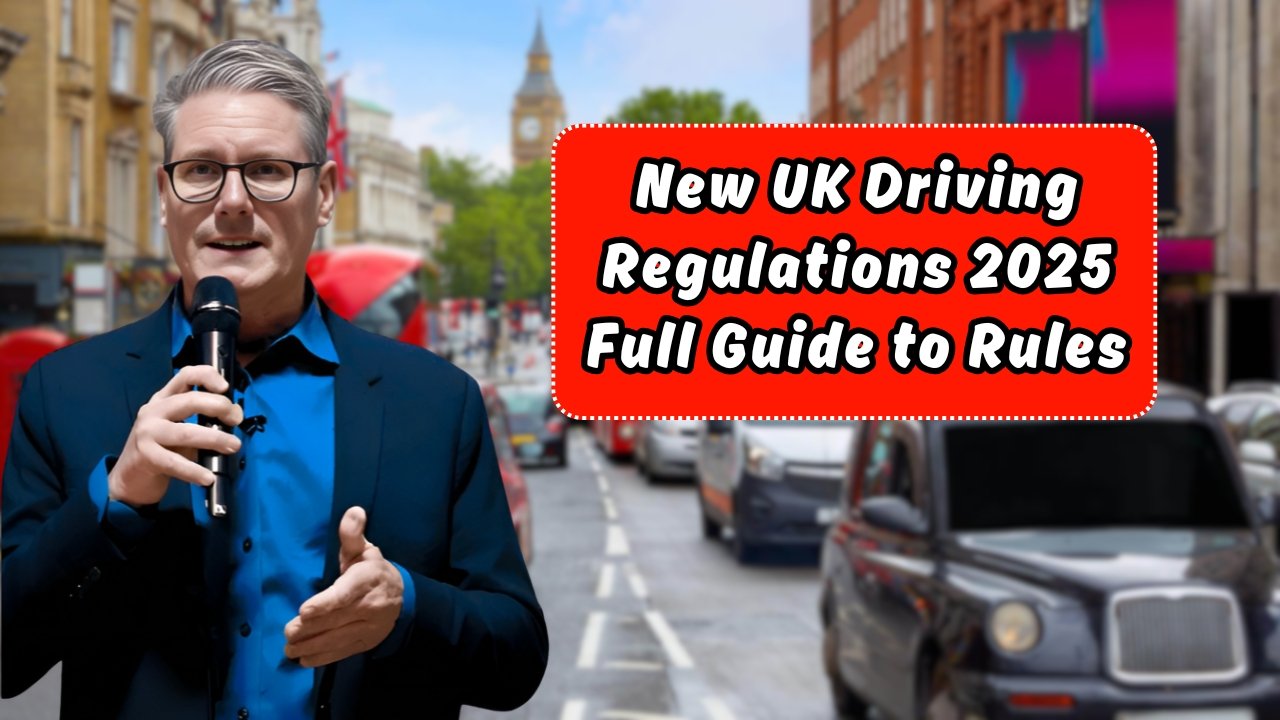Join on WhatsApp
Get the latest updates directly on WhatsApp – motivation, news & more!
Driving in the UK has always been governed by strict laws designed to keep roads safe and traffic moving smoothly. In 2025, several new regulations are being introduced that affect both new and experienced drivers. From updated rules on mobile phone usage to changes in speed limits and eco-friendly driving measures, these updates are important for anyone who regularly drives on British roads. This guide breaks down everything you need to know about the new UK driving laws in 2025.
Why New Driving Regulations Are Being Introduced
The government has updated the Highway Code and road laws to reflect modern challenges faced on UK roads. Rising traffic congestion, environmental concerns, and a growing number of road accidents have all contributed to the need for stricter driving policies. The new rules are not only about punishing drivers but also about creating safer and more sustainable travel for everyone.
Stricter Penalties for Mobile Phone Use
While it has been illegal to use a handheld phone while driving for years, the 2025 update makes the law even tougher. Drivers are now banned from touching their phones for any purpose, even when stopped at traffic lights or in traffic jams. Using a phone for navigation must be done through hands-free devices only. Anyone caught breaking this law faces a £200 fine and six penalty points on their licence. Repeat offenders may lose their licence entirely.
Speed Limit Adjustments in Urban Areas
One of the major changes in 2025 is the reduction of speed limits in many residential and urban areas. Councils across the UK are introducing more 20mph zones in an effort to reduce accidents involving pedestrians and cyclists. Motorways and dual carriageways remain the same, but there will be tighter monitoring through new digital speed cameras. Drivers who exceed limits in these zones risk higher fines and possible bans, depending on the severity of the offence.
Eco-Friendly Driving Measures
As part of the UK’s commitment to cutting carbon emissions, new eco-driving rules are coming into effect. Idling your car unnecessarily will now attract on-the-spot fines in many cities. There are also new restrictions on older diesel vehicles entering Clean Air Zones. In addition, electric vehicles are being encouraged through priority parking spaces, reduced tolls, and tax benefits. Drivers are expected to adapt to greener habits such as smoother acceleration, reduced idling, and better route planning.
Seatbelt and Passenger Safety Updates
The 2025 update also puts a strong emphasis on passenger safety. Not wearing a seatbelt now carries heavier penalties, not only for the driver but also for adult passengers. Drivers can be fined if children in the car are not wearing proper child seats or restraints. Authorities believe these measures will drastically cut down on road injuries and fatalities caused by careless behaviour.
Harsher Drink and Drug Driving Rules
Drink and drug driving have long been major concerns in the UK, and the new regulations tighten the legal limits even further. Random roadside breath tests are becoming more common, and the use of saliva-based drug tests has been expanded. Penalties now include higher fines, longer driving bans, and in some cases, prison sentences. Drivers are being reminded that even small amounts of alcohol or drugs can impair judgment and result in severe punishment.
Mandatory Driver Awareness Courses
To encourage safer driving practices, the government is expanding the use of driver awareness courses. Instead of simply issuing penalty points for certain offences, drivers may now be required to attend training sessions. These cover issues like speed awareness, the dangers of mobile phone use, and eco-friendly driving techniques. The aim is to educate rather than just punish, helping to build safer habits on the road.
Changes to Insurance and Vehicle Requirements
Insurance providers are also adjusting to the new laws. Drivers with penalty points for mobile phone offences or speeding will face higher premiums. Cars must also meet stricter MOT standards, with a particular focus on emissions and roadworthiness. For electric vehicles, new charging infrastructure requirements are being introduced to ensure safety during rapid charging.
What These Changes Mean for Everyday Drivers
For most drivers, these changes mean adapting to a safer, slower, and more environmentally conscious style of driving. The days of quickly checking a text at a red light or speeding through a quiet neighbourhood are over. Authorities are investing in more advanced surveillance cameras and automatic number plate recognition systems, making it harder to escape fines. At the same time, responsible drivers will benefit from cleaner roads, safer travel, and potential savings through eco-friendly incentives.
Tips to Stay Compliant with the 2025 Laws
To avoid fines and penalties, drivers should follow some simple tips:
- Always use a hands-free device for navigation and calls.
- Stick to 20mph in residential areas unless signs clearly state otherwise.
- Avoid idling your car when parked or waiting.
- Make sure every passenger is wearing a seatbelt before starting your journey.
- Never drive after consuming alcohol or drugs.
- Keep your car regularly serviced to meet MOT standards.
- Stay updated on local council rules, especially in Clean Air Zones.
Final Thoughts
The new UK driving laws in 2025 mark a significant step towards safer and more eco-friendly roads. While the changes may feel strict at first, they are designed to reduce accidents, cut emissions, and make driving a more responsible activity. For drivers, the best approach is to stay informed, follow the rules, and adapt to the evolving expectations of road safety. By doing so, not only can you avoid fines and penalties, but you can also contribute to a safer and greener future for everyone who uses UK roads.



